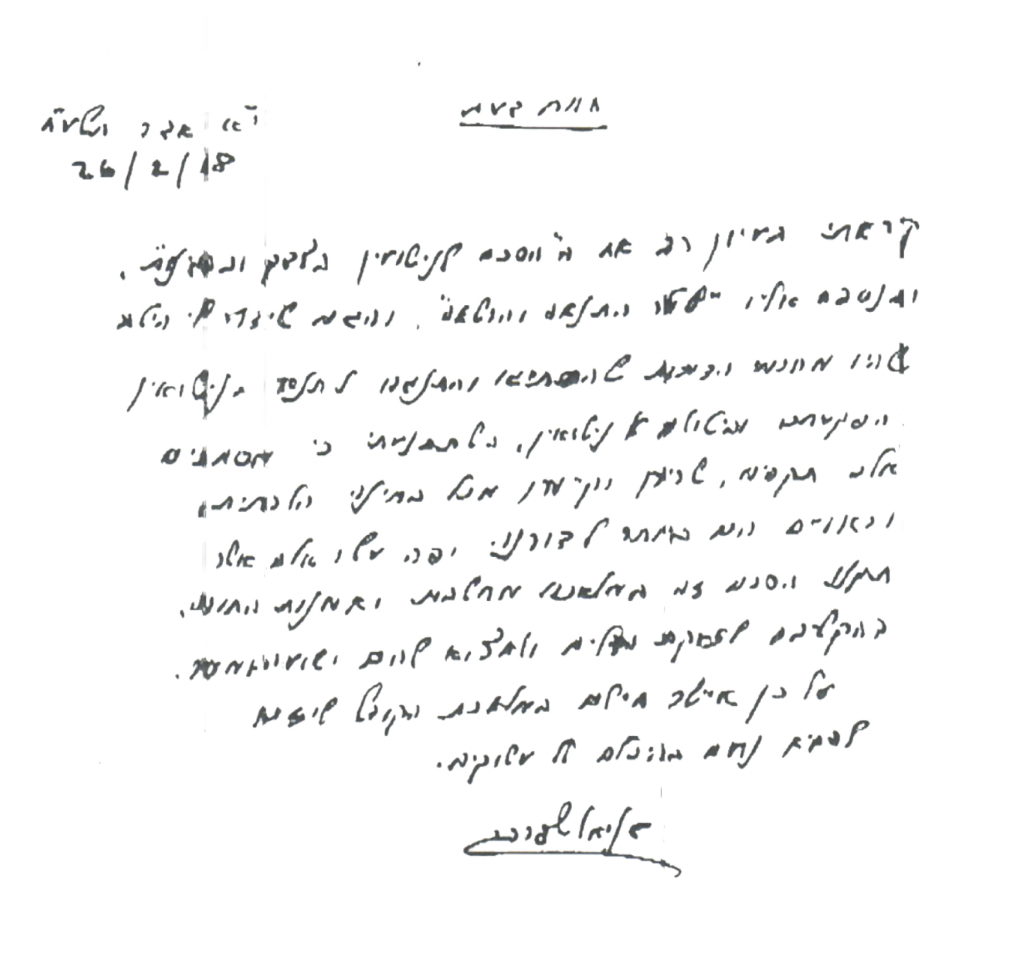The Agreement for a Just and Fair Marriage
Halachic Postnuptial Agreeent
What is the CWJ Agreement for a Just and Fair Marriage?
The Agreement for a Just and Fair Marriage, CWJ’s halakhic postnuptial agreement, is meant for Jewish couples who married in accordance with halakha (Jewish law). It offers comprehensive protection from marital captivity using both legal and halakhic tools.
The CWJ postnup addresses the halakhic challenges of both get refusal—when a spouse is unwilling to grant a get—and aginut—when a spouse is unable to grant a get.
Rabbinic Approval
“I have done a close reading of CWJ’s Agreement for a Just and Fair Marriage, as well as the halakhic addendum—the shtar—and I am persuaded that these documents are halakhically sound and applicable, and are appropriate for our time.”
—Rabbi Daniel Sperber

Frequently Asked Questions
The CWJ postnuptial agreement is suitable for all couples who married in accordance with Jewish law.
The CWJ prostnup contains legal and halakhic mechanisms that protect a couple from both get recalcitrance—when a spouse is unwilling to give a get—as well as aginut—when a spouse is physically unable to give a get.
According to Jewish and Israeli law, a woman is not divorced until her husband delivers a Jewish bill of divorce—a get—to her. If he refuses, she remains captive in marriage indefinitely. If a woman refuses to accept a get, the husband may also have difficulty remarrying. The CWJ postnup protects both men and women from get recalcitrance.
The postnup comprises two parts: the civil agreement (pages 1-3) and a halakhic bill (page 4):
Civil Agreement
The civil agreement prevents get refusal and extortion as follows:
Clause 1: Authority to Family Court: The postnup authorizes the Family Court (civil court) to have jurisdiction over any potential divorce proceedings between the parties, aside from the actual get ceremony in the Rabbinical Court. This authorization includes enforcing the postnup itself, as well as ruling on ancillary divorce matters like division of property, custody and child support.
Clause 2: Voiding Extortionate Agreements: The postnup neutralizes extortion by voiding unconscionable agreements made under the threat of get refusal.
Clause 3: Increased spousal support: The party wishing to divorce must notify the other party. If a get is not granted within a year from this date, the party delaying the divorce—be it the husband or the wife—will be obligated to pay the other party $2000 per month or 50% of their monthly salary, whichever is the higher sum.
Clause 4: Compensation for damages: The postnup defines get refusal as a form of abuse and grants authority to civil courts to award monetary compensation for damages incurred.
Halakhic Bill
The halakhic part of the agreement sets terms upon which a rabbinic court can grant a get on a husband’s behalf. The postnup uses the halachic mechanism of harsha’a laget—a halachic power of attorney in which the husband authorizes a proxy to grant a get if he is unable to do so himself.
This mechanism can be invoked in the event of tragedy, like if a husband falls into a permanent coma or has otherwise lost halachic agency mentally or medically. It may also be invoked in cases of a husband who is captured in war, missing, or whose body is never found.
This halakhic bill is enforced in a rabbinic court.
Read more about the halachic bill, called the Pledge for Compassion and Dignity, here.
Download and print out the postnup.
For part one, each partner initials the corner of each page and signs in full on page 3. There is no need to bring the agreement to a notary or court of law. While it is preferable to sign the agreement in the presence of an attorney who can authenticate the signatures, the agreement is still valid without it. CWJ attorneys can provide this service to you free of charge.
Part two, the halakhic bill, must be signed by the husband in the presence of two kosher witnesses: two religiously observant men who are not related to each other nor to either of the spouses.
After signing the postnup, scan it and send us a digital copy for safekeeping by clicking on the upload button at the bottom of this page. Keep the original in a safe place, such as with your ketubah. That’s it. Mazal tov!
Yes. We recommend signing both portions for the most comprehensive protection, but it is possible to sign only the civil portion or only the halachic portion of the postnup.
The civil portion of the pre- and post-nuptial agreements is the same, except for minor language differences indicating whether the couple is engaged or already married. It provides protection against get refusal.
CWJ Prenup: Halachic Portion
The halachic portion of the CWJ prenup incorporates the halachic concept of tna’im bekiddushin—conditions that uphold a marriage.
Before the marriage, the couple declares in the prenup that their union is predicated on certain conditions. As long as those conditions are fulfilled, the marriage is valid. If those conditions are not fulfilled, however, the original premise of the marriage was never true and the marriage is therefore annulled.
This halachic bill addresses cases where a man is mentally or medically incapacitated and therefore unable to grant a get; is missing; is captured in war; or is engaging in extreme get refusal, such as when the civil disincentives or Rabbinic Court sanctions do not sway him.
Since it annuls the original marriage, it solves cases of potential mamzerut as well.
In addition, the halachic bill addresses cases in which a woman requires a halitzah ceremony but it cannot be performed in a timely manner. The halitza ceremony releases a widow from the obligation to marry her deceased husband’s brother, in the event he dies childless. If the halitzah ceremony is not performed, she cannot remarry anyone else.
A woman who is released from marriage using the halachic portion of the CWJ prenup has the halachic status of a single woman, not a divorcee. She can remarry a Cohen.
Learn more about these halachic conditions here.
CWJ Postnup: Halachic Portion
The halakhic part of the CWJ postnup sets terms upon which a rabbinic court can grant a get on a husband’s behalf. The postnup uses the halachic mechanism of harsha’a laget—a halachic power of attorney in which the husband authorizes a proxy to grant a get if he is unable to do so himself.
This mechanism can be invoked in the event of tragedy, like if a husband falls into a permanent coma or has otherwise lost halachic agency mentally or medically. It may also be invoked in cases of a husband who is captured in war, missing, or whose body is never found.
This halakhic bill is enforced in a rabbinic court. A woman who uses such a document would have the halachic status of a divorcee.
Read more about the halachic bill, called the Pledge for Compassion and Dignity, here.
The halachic bill in the CWJ postnup can only be signed by married couples. Engaged couples should sign CWJ’s halachic prenuptial agreement.
The CWJ postnup addresses a broader range of halakhic problems that may arise at the dissolution of a marriage. This includes not only willful get refusal, but also aginut—when a man is unable to grant a get.
Most agreements only address get refusal by stipulating monthly financial payments. They do not specifically prevent extortion in exchange for the get. They do not address issues of aginut, which may occur if a husband becomes medically or mentally incapacitated. The CWJ prenup is the only prenup that includes specific conditions to solve all such issues.
Another significant difference between the CWJ agreement and others is the method by which it is enforced. In Israel, Rabbinic and Family Courts both have authority to adjudicate matters ancillary to divorce. Unless both spouses agree otherwise, the spouse who “races” to the courthouse and is the first to file papers determines which court has jurisdiction. The choice of court can affect how a postnup is interpreted and implemented. The CWJ agreement specifically authorizes the Family Court to enforce the legal portion of the agreement. Other agreement options leave this question open, leaving the “race to the courthouse” in place, or appoint a private arbitrator instead.
An arbitrator is a private judge. Most often, the arbitrator’s services are not free. Unlike a court of law, an arbitrator is not required to follow rules of procedure or evidence and his or her decisions cannot be appealed. The Tzohar agreement delegates authority to an arbitrator to interpret and implement the agreement. It also includes the option to delegate authority to the arbitrator over ancillary matters—the ketubah, child support, property.
Of course. In the introduction, the postnup states specifically that reconciliation is preferred and encouraged. However, unlike other postnups, it does not mandate marriage counseling as a prerequisite for utilizing the agreement. We believe that a couple should choose marriage counseling at their own initiative and terms, and that the get should not be withheld in order to compel anyone to undergo marriage counseling.
The CWJ halachic postnup has the halachic backing of Rabbi Daniel Sperber, whose approbation can be found here. Rabbi David Bigman, Rabbi Shlomo Riskin, Rabbi Yoni Rosensweig, Halakhic Expert Malka Puterkovsky and other leading rabbinic figures endorse CWJ’s postnup and encourage couples to sign one.
Read Rabbi Yoni Rosensweig’s in-depth halachic tshuva about the postnup’s halachic bill here.
The halachic portion of the postnup is based on a similar document used by Rabbi Yitzchak Herzog zt”l, Ashkenazi Chief Rabbi of British Mandate Palestine and subsequently of the State of Israel, and Rabbi Shlomo Goren zt”l, founder and head of the IDF Rabbinate and later Israeli Ashkenazi Chief Rabbi. In World War II, Rabbi Herzog required married soldiers in the Jewish Brigade to sign such a document before going out to war, and Rabbi Goren encouraged married IDF soldiers to do so as well.
Most often, the agreement is effective before it even reaches the stage of enforcement. It acts as deterrent to withholding the get in the first place.
The civil part of the agreement (pages 1-3) is enforced in a civil court, like any other legal contract. This addresses the vast majority of get refusal cases, leaving only the most extreme cases to be addressed by the halakhic part of the agreement.
The halakhic bill (page 4) is enacted in a rabbinic court. While we do not know of any cases in which a woman sought to implement the halachic bill in a rabbinic court, we believe that CWJ’s halakhic bill would be utilized by a rabbinical court in the event of extreme circumstances. In the past, the State Rabbinical Courts have sought out lesser-used and even radical mechanisms, such as get zikui, to solve particularly deadlocked agunah cases. In cases where the Rabbinic Court has little options, the CWJ prenup can provide a welcome opportunity for halakhic recourse.
The legal part of the agreement is written in a manner that we expect can be used anywhere. However, because each country has its own contract laws, it is best to review the postnup with a local attorney from the region where you live.
The halakhic bill is valid halakhically, regardless of country of enforcement.
What makes the CWJ Agreement for a Just and Fair Marriage the most comprehensive halakhic postnuptial agreement?

Upload a signed agreement
After you’ve signed the agreement, scan and upload a digital copy to our site. Keep your original agreement in a safe place. That’s it!
Still have questions?
Set up a free postnuptial agreement consultation with us here.
